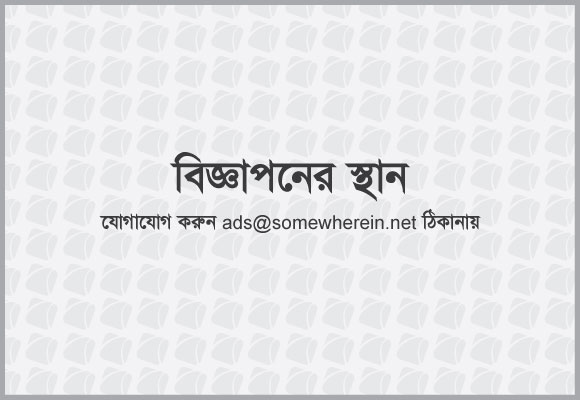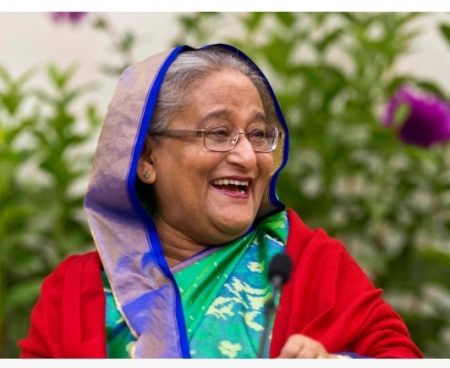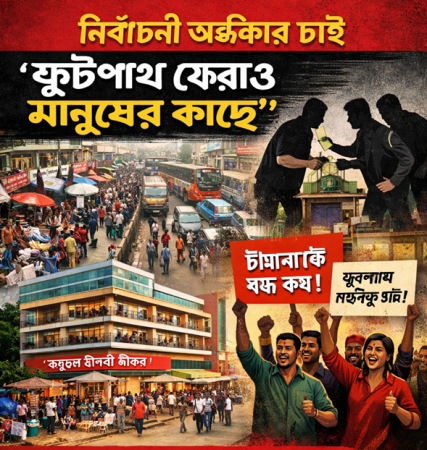Key point:
Free media, Judiciary and Democracy are three important factors for independent and sustainable development of a country. Media are critical for strengthening democratic ownership of development strategy and policy. Democracy has multiple forms. It can always improve and must always adapt. Democracy is the best political system for people to secure a healthy environment and fairness for everyone now and in the future. The judiciary has a role to play in the interpretation, explication and enforcement of laws and regulations. We will discuss in respect of India, Pakistan and Bangladesh
Free Media:
A report published by UNESCO shows that freedom of the press and governance indicators are closely correlated. If the media are free, it is likely that a country will be politically stable, have more effective and less corrupt officials, more robust and sustainable economic development, and more solid rule of law. Media and development interface has also uncovered additional connections, particularly relevant to the issues of conflict-resolution, poverty and corruption. Statistical correlation between a free press and democratization, good governance and human development, has been an important evidence-based contribution that links free media to the realization of democracy and development(work of Pippa Norris). Lack of information has adverse political as well as economic effects. In a book published by the World Bank Institute which addresses the role of mass media in economic development, Stiglitz and other authors demonstrate that better and timelier information results in better, more-efficient resource allocation with free and critical media playing a crucial role. “Freedom of expression, independent media and universal access to knowledge will fortify our efforts to achieve lasting results for people and the planet,” said Secretary-General Ban Ki-moon, opening a briefing at UN Headquarters on “Media freedom for a better future: shaping the post-2015 development agenda.”
Judiciary:
Independence is only meaningful if it serves the cause of justice for all. Principles of Independence of Judiciary:
The concept of judicial independence includes four basic principles, which have been suggested and recognized through international efforts in this field. These principles are:
1. Personal independence;
2. Substantive independence;
3. Internal independence; and
4. Collective independence
It is very clear to us that despite separation of judiciary, until and unless the government has adequate respect and willingness to implement the verdict of judiciary and all the rules and regulations related to the separation of judiciary, complete independence of judiciary is not possible.
Democracy :
In contemporary time, democracy has turned out to be the most supported political tool for development and social change, which has attained near global acclaim and admiration by many world leaders. Democracy must never be a sham. Real democracy is much more than elections and voting: it also means that everyone commits to fairness and to ensuring vibrant and meaningful public participation in decision-making, especially by the most marginalized people. It also requires effective measures to ensure freedom from vested commercial and financial interests; freedom from corruption; diverse and accountable politicians and public officials; a free and independent media; transparency; access to justice; the rule of legitimate law; an independent judiciary; and the upholding of all human rights.
Media in India:
With the dawn of the new year, India is looking ahead to a national election in May. Recent developments raise questions about the quality and quantity of independent news coverage of the polls as local media come under greater political influence. "Compared to many Asian countries, there is a great deal of freedom to report in India," writer and lawyer Suhrith Parthasarathy told CPJ. "But there is the issue of political control of the Indian media which begs the question of how truly free are journalists."
An analysis by The Hoot, a South Asian media watchdog, found that although it is difficult to trace the complex paths of media ownership in India, political parties and individuals with political affiliations own and control increasing sections of the press. According to a 2012 report by Business Standard, more than a third of news channels in India are owned by politicians or political affiliates, who use their channels as "political vehicles" to influence the course of local elections. In his recent article in Caravan magazine, Parthasarathy explored the political ownership of media during the past few years.
The cable distribution systems that telecast the channels are also coming under political control. Nearly 60 percent of the cable distribution systems in India are owned by local politicians, according to the Business Standard report. Cable distribution systems block telecasts of channels carrying information deemed politically unfavorable. While Sun and Kalaignar were omitting coverage of events in Sri Lanka, Makkal TV, which is owned by a rival politician, was providing robust coverage of the events. But politicians who controlled Sumangali Cable Vision, the dominant cable distribution system in the state, blocked telecasts of Makkal at the time, according to Parthasarathy. The news channels and the cable distributor did not respond to requests for comment. To compound concerns about independent coverage, reputable national print publications recently have shown signs of political allegiances.
Although India is heralded as the promised land of journalism, with more than 80,000 print publications and close to 400 news channels--at a time when the media industry elsewhere faces shrinkage and uncertainty--recent events underscore that the huge number of outlets do not guarantee widespread independent coverage in the world's largest democracy
Media in Pakistan:
Journalists in Pakistan live under the constant threat of killings, harassment and other violence from all sides, including intelligence services, political parties and armed groups, Amnesty International said in a new report. The report is based on extensive field research into over 70 cases and interviews with over 100 media workers in Pakistan. It examines several recent cases where journalists have been targeted for their reporting by a range of actors. Journalists are also victims of human rights abuses by non-state groups across the country. Aggressive competition for media space means that powerful political actors across the country put severe pressure on journalists for favorable coverage. On the other hand, the constitution of Pakistan in Article 19 clearly says, “ Every citizen shall have the right to freedom of speech and expression, and there shall be freedom of the press, subject to any reasonable restrictions imposed by law in the interest of the glory of Islam or the integrity, security or defense of Pakistan or any part thereof, friendly relations with foreign states, public order, decency or morality, or in relation to contempt of court, commission of, or incitement to an offence and article 19 of the Universal Declaration of Human Rights that also guarantees the right to freedom of expression.” However, what does this freedom mean and what are the topics that are included in this word ‘freedom’? Journalists should know the bottom line for discussion. Journalists should know there are limitations, ethics and a sense of honor in place when highlighting any issue. I believe the media has taken a step forward, assuming that country have a free media, but that does not mean that the media and media persons can do anything and can hit any state institution. In the race for popularity and to break news first, the media does not manage to deliver the quality of information to the audience with facts and figures, and with social or moral responsibility. This, however, results in anarchy and false perceptions among the public towards certain social issues.
Media in Bangladesh:
Print press in Bangladesh is pluralist and free. Broadcasting includes private satellite and radio channels. But many media do not respect media ethics. The media in Bangladesh is now virtually acting like the Fourth Estate. Despite all the freedom and 'fourth estate' status, one seldom sees any investigative and in-depth reporting in either newspaper or in television. Even those reports, which are printed with an investigative report tag, are not investigative reports in true sense, since the ingredients of investigative reports are missing from those stories. Lack of training for journalists and the attitude of the media organizations are often blamed for this situation. Many journalists are not equipped or trained to pursue an investigative report while the organizations do not give them time to pursue a story rather keep the reporters busy with day to day affairs. Moreover politician and businessmen are the owners of maximum channels and news papers. Many politicians are also businessmen. While the political ownership is particularly stark in broadcast media, it occurs in the print media as well. Owning a news entity has become a practical necessity for political parties in Bangladesh. Many journalists are threatened even had to go prison for the opposing of government policy.
Judiciary in India:
India’s higher judiciary has created and overseen the evolution of public interest litigation in India. The Indian judiciary, especially at the level of the Supreme Court and the High Courts, has for long been concerned with the concept and practice of justice. The Court was, for a long time, used only by those who were wealthy and affluent. The poor were priced out of the judicial system and they had become what one would call ‘functional out-laws’. It was impossible for the poor to approach the Court for justice because they lacked the awareness, assertiveness, and access to the machinery required to enforce their constitutional and legal rights.
The Supreme Court found that the main obstacle which deprived the poor and the disadvantaged of effective access to justice was the traditional rule of locus standi which insists that only persons who have suffered a specific legal injury, by reason of actual or threatened violation of a legal right or legally-protected interest, can bring an action for judicial redress.
It was felt that even if legal aid offices were established, it would be impossible for them to take advantage of such legal aid program because most of them lack awareness of their constitutional and legal rights. Moreover, even if they were made aware of their rights, many of them would lack the capacity to assert them.
The Supreme Court, therefore took the view that it was necessary to depart from the traditional rule of locus standi and to broaden access to justice by providing that where a legal injury is caused to a person (or to a class of persons) by violation of their constitutional or legal rights and where such person or class of persons is, by reason of any disability, unable to approach the Court for relief, any member of the public or any bona fide social action group can bring an application in the High Court or the Supreme Court seeking judicial redress for the injury caused to such person or class of persons.
The Supreme Court became a symbol of hope for the deprived and vulnerable sections of Indian society. It acquired fresh credibility with the people, as the courts began dispensing justice to under-trial prisoners, women in distress, juveniles in jails or otherwise incarcerated, landless peasants, bonded labor, victims of environmental pollution And Over a period of a decade and a half, the Supreme Court, later followed by several High Courts as well, has through a series of SAL judgments (several of which have been detailed above) drastically altered the jurisprudential landscape of the country. It has forged new concepts and procedures relevant to the cultural, economic, and social conditions in post-colonial India.
Judiciary in Pakistan:
In Pakistan’s case, if a judiciary is there but it cannot enforce the rights of Balochistan, the North West Frontier Province (NWFP), Sindh, Punjab, the Federally Administered Tribal Areas (FATA), and the capital territory, as well as all the fundamental and incidental rights of citizens then, for practical purposes, no judiciary exists. One organ of the state is, in fact, missing.
The rights of a person to remain in Pakistan, live in Pakistan and not be taken out of Pakistan are to be guaranteed by the courts of the country. If my home is not protected against encroachment on my privacy, if my telephones are bugged, if there is wire clipping, if somebody is spying on me, the judiciary is bound to enforce Article 14. If a citizen of this country disappears, or is picked up from his home, his work place or from anywhere walking on street and is not brought before a court, not for one day, not for one week but for years, the judiciary has failed to enforce his right under Article 15 of the Constitution. If the country’s judiciary is not capable of protecting even this fundamental right, then the federal set-up may exist de facto but not de jure.
Notably, the thrust of most of the fundamental rights is against the federation. A state where one ordinary citizen can get justice against another citizen, but both cannot get justice against the state, is not a federation according to the jurists. This is because, under the constitution of a federation, the judiciary is a provider of justice not only between individuals but also between individuals and the state.
The Constitution of Pakistan may be seen as the country’s power distribution box. It distributes power to the federating units and federation, to the judiciary, to the armed forces, to provinces, and to the governors. Nobody else is delegating power. The president enjoys his own powers but he is not superior to the nazim of a district. The district nazim is working in his own place; the provincial governor and provincial chief minister are working in their own places, and the president is working in his place. All of them are designated functionaries of the system, whether they serve at its hub or its ends. Each derives his powers, role and responsibilities from the constitution, and is required to perform the functions devised for the position by the constitution. Thus, the mutual relationship of these functionaries does not carry any of those nuances of personal authority that may be found, for example, among elder and younger brothers.
Sadly, the judicial system of Pakistan is also marred by corruption. But corruption has taken roots in the system only because it has been patronized, by design, by successive regimes. Three years ago, when Justice Malik Qayyum was found involved in Mr. Zardari’s case by the seven judges of the Supreme Court, we found the fact. The government identifies corrupt judges and allows them to abuse their positions; in return, the judges oblige the government when it needs them. Apart from its obvious undesirability, a corrupt judiciary would also never be an independent judiciary. It would have to side with the rulers and conform to their wishes at all times. The only way to have a clean, honest and independent judiciary is to kill the corruption and not the independence.
The precautionary principle has been accepted in Pakistan. In Zia v WAPAD, citizens were concerned about the construction and operation of a grid station, in particular about being exposed to the hazards of electromagnetic fields. The citizens petitioned the Supreme Court of Pakistan for consideration as a human rights case raising two questions, one of which was whether any government agency has a right to endanger the life of citizen s by its actions without the latter’s consent. Notice was issued by the Supreme Court to the relevant government authority.
A factor that can further enhance the chances of fair judgments is the presence of an alert press and a wide awake civil society. With these checks, it would not be possible for a court to deliberately go wrong, for a judge to misuse authority, or for such unfair practices to take place.
It is noteworthy that such reporting of the judiciary’s performance does not constitute contempt of court. In fact, there is no contempt of court law enforceable in the country for the time being; the point was recently discussed in detail by the Supreme Court in Chief Justice Chaudhry Iftikhar’s assault case and, embarrassingly, everybody, including the law ministry and the attorney-general, was in doubt. The Contempt of Court Act 1976 was amended by Mian Nawaz Sharif in 1997 to provide for intra-court appeals in Section 10. Then, General Pervez Musharraf issued multiple ordinances on the pretext of consolidating the entire law, which repealed the 1976 enactment. The Supreme Court found that the 2003 ordinance came at a time which is protected under 17th constitutional amendment .
Judiciary in Bangladesh:
Our long cherished ‘separation of judiciary’ is a thing of reality at last on November 1, 2007 after 36 years of independence. Which has been ignored by political and military government over the last 36 years? This historic evolution would usher (to show someone where they should go) in a new era of greater judicial independence & this greater independence would enable the lower judiciary to satisfy the justice-seekers. The people hail & will hail the persons whose contributions culminated in this separation of judiciary from executive and at the same time we have to think about the possible implications that may follow this separation. Separation of judiciary is a constitutional mandate and a demand of the people for the welfare of the people & judicial magistrates will able to carry out duties independently once the separation is implemented. This is undoubtedly a milestone that has been achieved to advance and ensure greater judicial independence and thereby establish rule of law in the country.
A true separation of government powers is essential to ensure the accountability of government, hinder corruption and protect the fundamental freedoms of citizens against the will of the government. Each branch of government must be, and be seen to be, free to act as a check and balance on the other without fear of interference. As long as the press continues to report independently and authentically, making the highest use of the freedom of expression acknowledged for it by the country’s apex court, and avoiding the pitfalls of careless scandal mongering and blackmailing, it will facilitate the effective provision of justice in the country. Now it is a matter of fear to criticize about judiciary in a constructive way, rather it will be a contempt of court.
Democracy in India
India is attempting a transformation few nations in modern history have successfully managed: liberalizing the economy within an established democratic order. The Indian experience is different on all three counts. India adopted universal suffrage at the time of independence, long before the transition to a modern industrialized economy began. The country does not have an extensive welfare system, although it has made a greater effort to create one of late. And, defying democratic theory, a great participatory upsurge has marked Indian politics, a phenomenon that is only beginning to be understood by scholars and observers: since the early 1990s, India's plebeian orders have participated noticeably more in elections than its upper and middle classes. In fact, the recent wisdom about Indian elections turns standard democratic theory on its head: the lower the caste, income, and education of an Indian, the greater the odds that he will vote. One important factor in the faith that people have in elections is the performance of the Election Commission of India (ECI). Set up in 1950 to manage and conduct elections, unlike many of its counterparts in other democracies, the ECI is a genuinely autonomous and constitutional body, which through its sixty-year-old life has evolved into a responsive and efficient public body. Only the Supreme Court of India shares this level of popular respect.
Democracy in Pakistan:
A huge total of 167 countries in the world are running under the form of Government which is called Democracy and Pakistan is one of those countries. Different types of democracies prevail in Pakistan at different times. The constitution of Pakistan is now a backing a Parliamentary form of Government but in the previous constitutions like 1962 and 1956, we had Presidential form of Government. The constitution at this moment is an amended version of 1973, which is following the Parliamentary form of Government. According to Muhammad Ali Jinnah, the Quaid-e-Azam, “Pakistan is made for the betterment of the people living in it. People will themselves select their Leader and it’s the responsibility of the Leader to fulfill the needs of the people and work day and night for this Motherland.”
From the day of inception of Pakistan, the people are struggling for a better form of Government and they have selected Democracy as the best one. But it’s a misfortune for the people of Pakistan that the democracy could not continue for long and it is derailed off and on. Its first happened in Pakistan that transfer of power from one democratic government, which has completed its term, to another elected government. The citizens of Pakistan are important component of the Democracy in the country. They choose their leaders through voting and the leaders then steer the Government in their own way. Role of Minorities in Pakistani Model of Democracy is also worth appraising. They have their reserved seats as well. They got the right to vote in the constitution of Pakistan in 1962. From then on, we can see the struggle by the minorities for the democracy in Pakistan. We have seen people like Kamran Micheal who worked very hard for democracy. According to Nawaz Shareef, “Minorities in Pakistan are a very important component of our democracy. We cannot forget the role they are playing for the betterment of the country and also for the continuation struggle of democracy in Pakistan.”
Democracy in Bangladesh:
Bangladesh is a strange place with respect to democracy. It has experience of five consecutive elections. But no one is telling that Bangladesh is in right track. The journey towards democracy is not a novel phenomenon in Bangladesh. The people of Bangladesh struggled for democratic political system for long years. The process of democratization that started in Bangladesh following the liberation was not very encouraging. It has proceeded in the midst of ups and downs. The role of the government and the opposition was not conducive to democratizing the political system through free and fair elections and institutionalization during the recent past. From the perspective of political science a unique 10th national parliament started its journey. This parliament is unique in many ways, not merely one. In fact, this parliament is one of a kind in the history of democracy. The unique nature of this parliament is this: that more than half of the members were elected unopposed. The election was highly controversial and its credibility was questioned by national and international media and experts. More than half of the voting population could not vote in this election. The vote was boycotted in many places. Even where people did show up, the turnout was laughingly low. The party cadres made the number of votes cast more by casting fake votes. So, the legal support for this parliament might be perfect on paper, but the real picture is different. This parliament does not have the vote of the people. Historically, we can say that the institutionalization of democracy and free and fair elections, which is required for democratic functions and stability, has been hampered in Bangladesh mainly by the ruling party contributing to the continuation of the movement for Non-Party Caretaker Government by the opposition political parties.
Concluding Remark:
Though the situations and environments differ in the three countries they have some common perception. Corruption is commonly barrier in these countries. Parliamentary democracy is also common. People of these countries only can solve the problems.


 অনুগ্রহ করে অপেক্ষা করুন। ছবি আটো ইন্সার্ট হবে।
অনুগ্রহ করে অপেক্ষা করুন। ছবি আটো ইন্সার্ট হবে।







